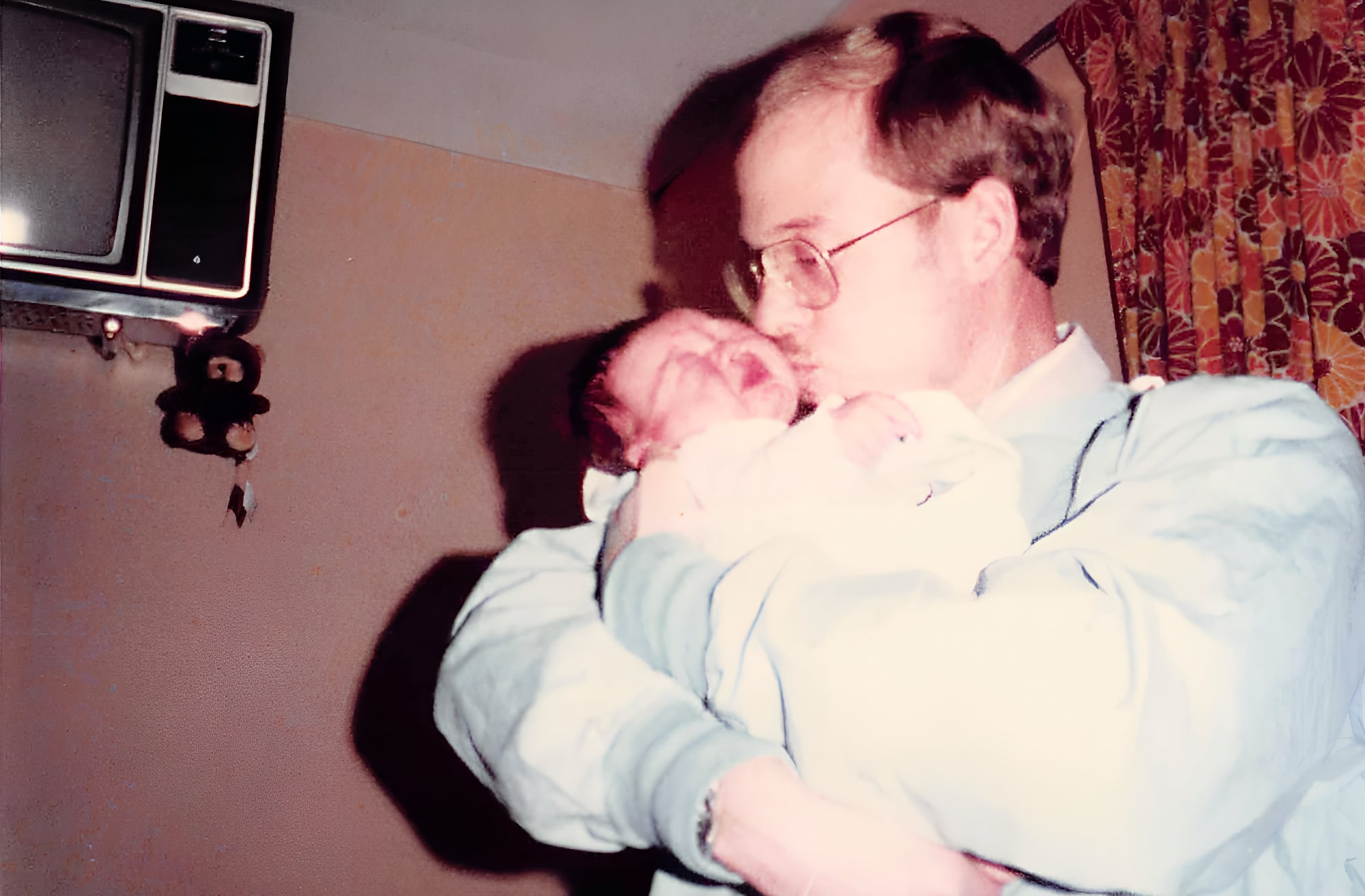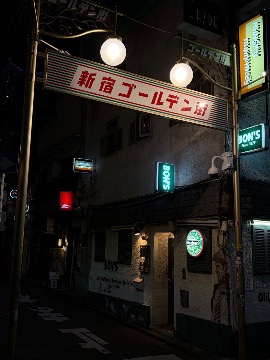You're looking at my e-mail newsletter, Searls of Wisdom, recreated for you here in website form. For the full experience, subscribe and get it delivered to your inbox each month!
Searls of Wisdom for December 2024
Welp, we're finally done with 2024.
It was a busy year for Searls family of brands. A few highlights of what I'll remember this year for:
- Launching my first podcast, Breaking Change, and having an absolute blast doing it. Check out the latest episode, where Aaron "tenderlove" Patterson and I spend over two hours stack-ranking a year's worth of puns. (Also available in video!)
- Collaborating with Becky to help build her business's first software product, which I have been using myself as it offers a very good way to go about figuring out which weights to lift and when
- Retiring from conference speaking with one final talk (though I reserve the right to take another stab at public speaking in Japanese)
- Providing minor logistical (and literally no other) support for Jeremy as he continued to 3D print the change he wanted to see in the world, from theme park props to over-the-top character costumes
That said, give it a few decades and if 2024 ever comes up in conversation, the first thing to come to mind will almost certainly be December's passing of my father, Fred.

Rather than wandering around the house and cooking up one of my trademark insightful-but-totally-overwrought essays about life, I thought it'd be more appropriate to print the remarks I shared about Fred at his funeral. The pastor told me to keep it to 5-7 minutes. I did my best, but ultimately found it impossible compress his impact on me and the other people in his life within such a tight time constraint. (Says the guy with the 3-hour podcast, I know.)
The service's program called what follows a remembrance. Does that make it a eulogy? That word feels too strong, to be honest (I've been driving without a valid eulogy license for years). Anyway, here are the words I said.
Thanks, Fred
I just want to share three things I have in common with my dad and how he taught me to make the most of them.
The first thing
The first is that Fred wanted to reach an infinite number of people despite having a finite amount of energy.
Our childhood home was right next to dad's dental office, separated only by a public park. On countless summer days, my brother and I would walk across the park, stop at the office, ask for money, and then get a Slurpee at the 7-11 on our way back.
During those office visits, I'd see Fred with his patients. He was absolutely amazing. He understood most people are afraid of going to the dentist, so he exhibited incredible warmth, understanding, and kindness. The fascination he showed his patients was so over-the-top I think they sometimes simply forgot to be scared. Those visits always left me feeling "wow, I have the best dad ever."
But then he came home.
He needed time to himself. He would go for a run or hop on his bike instead of playing with me. He expressed emotions—worry, frustration, overwhelm—he never would in public. As a kid, I was jealous and confused: why couldn't I have the dad I saw at the dental office all the time? Did he love his patients more than me?
Then I grew up and realized I'm the exact same way. I'd go to software conferences and—knowing others are anxious about getting lost in a sea of strangers—I'd spend every waking moment making people feel welcome, including them in conversation, and treating them like they mattered.
But at night, my wife Becky and I would get back to our hotel room and I would immediately shut down from social exhaustion. No energy left for her. This led Becky to quite fairly ask: what the hell? Why did I give my best self to people I'd never see again, while she got me at my worst?
Dad and I were wired to blast love and affection at everyone we encounter, despite both needing lots of time to recharge in solitude. His example taught me how to show genuine love and compassion to total strangers, as well as the costs of ending every night running on empty. I learned that to be the person I wanted to be for others first requires taking good care of myself—being honest about my limitations, prioritizing my own needs, and finding balance in daily life.
The second thing
The second thing is that Fred was unusually open about his brokenness as a human and comfortable exposing his vulnerabilities to others.
I got that from him, too. In case you don't know me, I can be a real piece of shit. And that was even more true back when I was in high school.
In general, Fred had an impressive capacity for putting up with me, but he wasn't perfect. One evening, I was playing videogames and apparently ignoring whatever dad was saying, because it resulted in him picking up my Nintendo GameCube by the handle and throwing it at the wall. (Everyone always wondered what that handle was for…)
I was speechless, but I wasn't scared. Because I knew what was going to happen next.
Fred walked away. Cooled off. Then came back. And he gave me the most heartfelt, genuine apology. No blame. No excuses. No equivocation. And the next day, the GameCube-shaped dent in the drywall had been spackled and painted.
Fred gave the best apologies. He'd explain why what he did was unacceptable. He'd confess his fears that he wasn't a good father. He'd cry. I'd cry. And then we'd heal.
So many people go through life as though admitting fault and apologizing costs them something—as if it's a sign of weakness. They hold back apologies like bargaining chips in a negotiation. Even if it results in prolonged conflict and division.
But watching dad, I learned that if you freely acknowledge your shortcomings, then to apologize for them costs you nothing. If you ever catch Fred at anything less than his best, don't be surprised if you receive an apologetic text message 15 minutes later. I just learned this week he always sent texts like that to mom, the exact same way I do to Becky half the time she leaves the house.
Hell, if he could talk right now, he'd start by saying how sorry he is for interrupting your holiday plans by being here.
The third thing
The third thing was that Fred came from a long line of intense worriers. I inherited this gene as well.
You know, he was the only person I ever met who could correctly re-fold a paper map?
The night before any family trip, he'd be at his desk, leaning over a maze of freeways and highlighting the route that he'd drive the next day. And then, in green, highlighting every alternate course he might need to take in case of an unexpected road closure. And then, packing extra maps of all the surrounding states, as well… just in case.
When dad's brain had spare time, it worried. And he addressed that worry by planning, preparing, and preventing whatever he was worried about. In response, his brain would imagine increasingly unlikely and obscure things that could go wrong. And he'd tackle those worries too.
Fred's ability to identify risks and his capacity for addressing them resulted in his being extraordinarily productive, meticulously organized, and constantly vigilant. And when I became an adult, I found myself coping with worry in much the same way.
In 2017, I took dad to Nashville for a weekend trip to see a Northwestern bowl game. He was unaccustomed to the role reversal. The first dozen conversations started with, "did you think of this," and, "what about this?" But once he realized that everything was handled and that for once it wasn't his job to worry about it, I got to see him let go. Relax. Genuinely enjoy himself.
I don't remember whether our team won or not. It didn't matter. That was enough.
Dad showed me how to translate abstract worry into productive action, but also that pursuing total control is futile. That being prepared is important, but there's no way to completely avoid the unexpected. That sometimes the best you can do is to let go of the worry and try to react well if things don't go to plan.
Thank you
One Christmas, Fred's sister Sally sent me a dental office Lego set, and I remember dad was pissed. I was just excited to put it together, but dad told me not to get any ideas. That I wasn't allowed to be a dentist when I grew up. That the stress wasn't worth it.
For context, I was, like, five.
I lost count of how many times and in how many ways dad told me not to be like him, but it didn't work. I'm a hell of a lot like him. And I'm very grateful for it.
Because Fred always showed his real authentic self—the good and the bad—I was able to build on the gifts he gave me in ways that he never could. And I have a remarkably happy life as a result.
So I just wanted to say thank you, dad.
